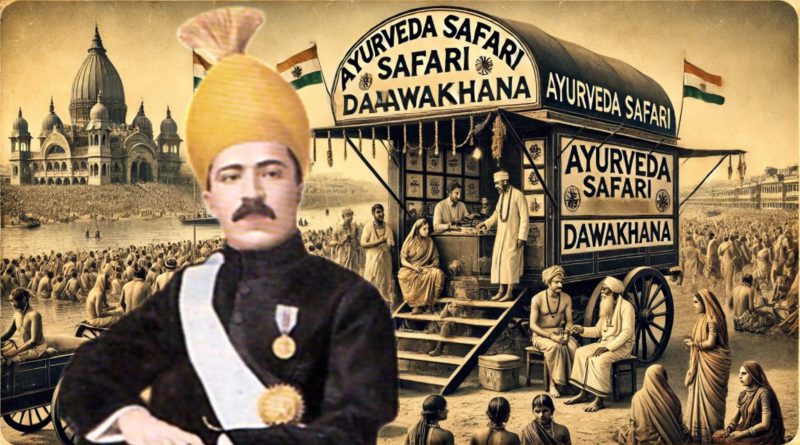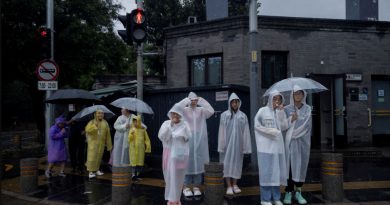INDIA-1942: Nizam’s Gift to Maha Kumbh Pilgrims—Ayurveda Safari Dawakhana
The mobile clinic became a symbol of the Nizam’s commitment to improving healthcare and preserving the rich tradition of Ayurveda.
In 1942, at the grand Kumbh Mela in Prayag, a unique healthcare initiative was set in motion under the leadership of the VII Nizam of Hyderabad, Mir Osman Ali Khan. Recognizing the challenges of tending to the health of millions of pilgrims, the Nizam established a mobile Ayurvedic clinic to ensure that pilgrims received quality healthcare and to promote traditional Indian medicine.
This initiative, known as the Ayurveda Safari Dawakhana, was designed to address the specific medical needs of the devotees attending the Kumbh Mela. The project was documented in a rare Urdu booklet titled Report – Nizam Ayurvedic Safari Dawakhana, researched by S.A. Hussain and Vinod Kumar Bhatnagar from the National Institute of Indian Medical Heritage (NIIMH).
Their work offers an insightful look into the conditions at the Kumbh Mela, the health challenges faced by pilgrims, and the strategic measures taken to prevent disease outbreaks during the event.
The Ayurveda Safari Dawakhana was one of twelve healthcare centers set up at the Kumbh Mela, providing medical assistance to thousands of devotees who gathered at the holy site. The mobile clinic became a symbol of the Nizam’s commitment to improving healthcare and preserving the rich tradition of Ayurveda.
The clinic’s establishment was a well-thought-out effort, beginning with a recommendation from Mahant Saba Puran Dasji. Osman Ali Khan, deeply invested in promoting Ayurveda, took immediate action to set up the mobile clinic. The clinic, equipped with a team of skilled Ayurvedic physicians, left Hyderabad on December 26, 1941, with all the necessary medicines and medical equipment for the pilgrims.
Led by Pandit Radha Krishna and M.A. Rangachari, the team arrived at the Kumbh Mela and began providing healthcare services on January 1, 1942. Though it started operations at the beginning of the year, the official inauguration took place on January 6.
Mir Osman Ali Khan’s dedication to the promotion of Ayurveda went beyond this single event. In his home state of Hyderabad, he allocated Rs 35,000 annually to develop and preserve Ayurvedic practices, signaling his strong belief in the value of traditional medicine. His efforts went a long way in supporting public health and the continued relevance of Ayurvedic knowledge.
The Ayurveda Safari Dawakhana at Kumbh Mela was an innovative initiative that merged the wisdom of Ayurveda with the practical needs of public health.
It not only alleviated the medical challenges faced by pilgrims but also underscored the Nizam’s forward-thinking vision of integrating Ayurveda into modern healthcare. Through this endeavor, he ensured that the sacred event of Kumbh Mela was not only a pilgrimage experience but a safe one for all attendees.



